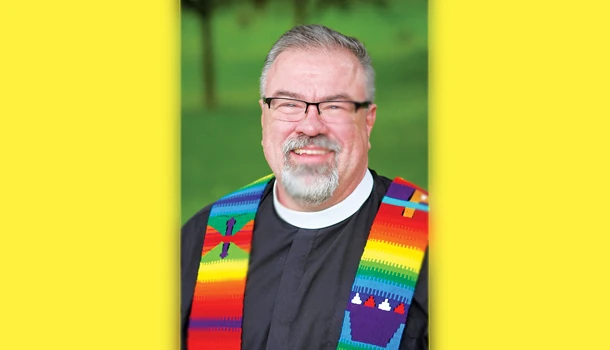

Hello Everyone,
Between my writing, Bible studies, and devotional time, I spend roughly 30 to 40 hours each week in the Word. The more I read, the more clarity I gain—but at the same time, the more I realize just how much I don’t know.As Paul warns in 1 Corinthians 8:1, knowledge can puff us up—convincing us we’re wiser or more spiritually mature than we really are. I’m sure I’m guilty of that. Yet I remain painfully aware of how small my understanding is compared to the vastness of God’s wisdom. That awareness makes me cautious—in my Bible studies, in personal conversations with other Believers, and especially in anything I write or teach.
James doesn't mince words:
James 3:1 NLT
That verse—and others like it—honestly terrify me. I don’t take lightly the responsibility that comes with teaching or writing about God’s Word. There’s a weight to it that should humble all of us.
Unfortunately, that same reverence seems to be in short supply—both in the broader Christian world and certainly in the secular one. Everyone seems to be an expert, and the result is a flood of noise that often drowns out the truth. It’s not an overstatement to say that there is far more error being taught in the name of Christ than truth.
Jesus himself issued a chilling warning:
Matthew 18:6 NIV
That kind of accountability ought to make all of us think twice before we speak in His name.

Humility
Of all the heart-postures a person can take before God, humility is the one that captures His attention most deeply. God had a uniquely intimate relationship with Moses—arguably deeper than with anyone else in the Old Testament. And it’s no coincidence that Moses is described as “the most humble man on earth” (Numbers 12:3).Humility catches God’s attention. It opens doors to revelation, relationship, and divine favor. But in our culture, pride and arrogance are paraded as virtues—qualities to be admired and emulated. Ironically, those are the very traits that put us at odds with God. Pride is not just a character flaw—it’s an anti-God spirit. And we’re drowning in it.
Paul reminded the Corinthians that, even in our most confident moments, our understanding is still limited:
1 Corinthians 13:12 NLT
When we speak in absolutes about Scripture—especially beyond what is clearly revealed—we tread on dangerous ground. Paul says we’re seeing things imperfectly, which means there are mysteries we simply cannot grasp on this side of eternity.
Every time we speak into someone’s life, especially in matters of faith, our words don’t just fade—they echo. They become part of that person’s decisions, worldview, and potentially, their eternal destiny. That’s why humility isn’t optional; it’s essential.

False Absolutes
There are three primary groups or classes of false absolutes operating within the Christian church today:
- The Ekklesia
A few weeks ago, I wrote a blog titled “The New Charismatic Movement,” where I discussed a growing trend within the Charismatic church: the rise of false prophets and teachers. This movement is marked by a spirit of arrogance—leaders who claim access to hidden knowledge or divine insight that goes far beyond what Scripture actually reveals. They teach things we simply cannot know from the Bible, and yet, God's people are flocking to them by the thousands. - Speculative Prophecy Science
There’s also a newer trend—groups blending prophecy with archaeology and the paranormal. These individuals try to validate biblical prophecy through speculative “science.” Some of what they present is intriguing and thought provoking. But that’s the problem—it’s mostly speculation. The real danger comes when they teach their theories as settled fact. Worse still, they build new layers of “truth” on top of those unproven assumptions, presenting a shaky house of doctrine to unsuspecting Believers. - Prophecy Dogmatists
Another group misusing God’s Word are some who teach on prophecy. Now, there’s nothing wrong with studying or teaching prophecy—in fact, Revelation 1:3 promises a blessing for those who do. But trouble comes when prophecy is taught with dogmatic certainty. The truth is, there’s so much we don’t and can’t know.It’s reckless for anyone to proclaim,
“This is how it’s going to be!”as though God handed them the final script.
People follow these teachings, not realizing they’re betting their lives on someone else’s assumptions. They make decisions—sometimes financial, relational, or spiritual—based on what they think the future holds. Too often, these teachings foster a short-term, crisis-driven view of the world, when a long-term, Kingdom-focused mindset would be far more biblical.

Absolutes in Love
The modern church finds itself in the middle of a heated argument—ironically, about love. This debate is so intense and widespread that entire denominations are fracturing over it. Is there anything more tragic than churches dividing over the very concept that’s supposed to unite them?At the heart of the dispute is the nature of love itself. One side insists that love is all-accepting, without restrictions—that if something is done in the name of love, it must be valid and godly. The other side contends that love, while powerful and central to the Christian faith, is never divorced from God’s character, truth, and commands. In short, love has boundaries because God has boundaries.
The idea that love stands as an absolute apart from God isn’t just flawed theology—it’s a dangerous distortion. If “love” becomes the supreme virtue, disconnected from righteousness, holiness, and truth, then anything can be justified in its name. And that’s precisely the trajectory of progressive Christianity: elevating love to a level where it overrides every other attribute of God—including justice, judgment, and the clear boundaries found in Scripture.
The Slippery Slope of “Love Without Limits”
To understand how far this thinking can go, consider what’s already happening in secular culture. There are progressive voices now arguing that we must accept pedophilia as a legitimate form of “love”—coining euphemisms like “minor-attracted individuals” to soften the moral offense.
To be clear, no mainstream church has embraced this view. But this is exactly how the distortion of love began in the church—by redefining it around gender identity, sexual orientation, and personal expression, rather than grounding it in the unchanging character of God.
This is not compassion. It’s compromise. And when love is severed from truth, it stops being love at all.
Love, as defined by God, is never aimless or permissive. It is holy, intentional, and rooted in truth. As Paul wrote, “Love does not delight in evil but rejoices with the truth” (1 Corinthians 13:6). When the church forgets this, love becomes a license for rebellion instead of a call to redemption.

Image Credit: Pixabay.com
Final Thoughts
The pride and arrogance of our world is off the charts. There has never been a time in history when hubris ruled the thoughts and actions of humanity more than it does now. This same pride has infected the church and church doctrine.God loves a humble heart and responds to those who approach Him with humility:
Isaiah 66:2 NLT
Pride and arrogance have no place in the Christian life or in the church. Our existence, health, wealth, salvation, and eternity are all due entirely to God’s grace and mercy. It is not of our own doing:
Ephesians 2:8-9 NIV
As Christians, we must approach truth with humility, recognizing that God's ways, thoughts, and understanding far exceed our own. Taking absolute positions on any issue—especially those not clearly defined in Scripture—can be a subtle form of pride. It assumes that we fully grasp the mind of God in areas where He may not have chosen to speak definitively. This mindset can lead to dogmatism, division, and an unteachable spirit. Wisdom often lies in the ability to say, “I don’t know,” or “Let’s keep seeking God together.”
However, this doesn't mean that we avoid absolutes altogether. There are foundational truths in Scripture that are not up for debate—eternal realities God has made unmistakably clear. These are not man’s opinions; they are God’s declarations. For instance, Jesus boldly declares:
John 14:6 NIV
This is not a suggestion or a perspective—it’s an absolute statement from the mouth of Christ himself. In such cases, we can stand firm with confidence, not out of arrogance, but out of reverence for the One who is Truth.
The key is knowing the difference between God’s revealed absolutes and our personal convictions. One demands unwavering faith; the other calls for humble discernment.
Let's commit to being people of truth—anchored in Scripture, clothed in humility, and guided by the Spirit.
God Bless!
Mark
Questions For Further Study
- What are some practical ways we can cultivate humility when studying and teaching Scripture?
(See: James 1:5, Proverbs 3:5-7) - How can we discern the difference between a biblical absolute and a personal conviction?
(See: 2 Timothy 3:16-17, Romans 14:1-5) - Why is it dangerous to teach speculative ideas as biblical truth, especially in the realm of prophecy?
(See: Deuteronomy 18:20-22, Matthew 24:36) - What does Scripture say about love being rooted in truth rather than emotion or cultural trends?
(See: 1 Corinthians 13:6, 1 John 4:7-8, John 14:15) - In what ways can pride subtly influence our theology or ministry, and how can we guard against it?
(See: 1 Corinthians 8:1-2, Isaiah 66:2, Philippians 2:3)

